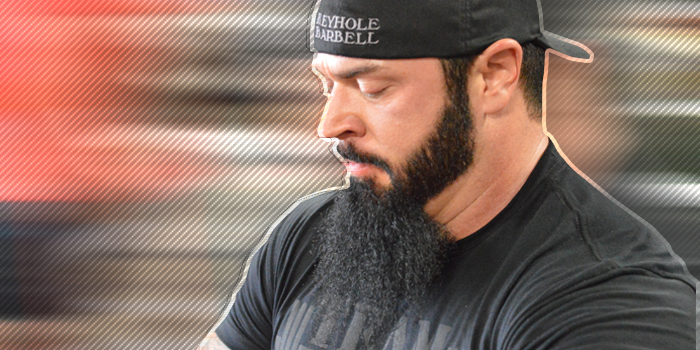
The importance of proper nutrition for the competitive powerlifter, or any athlete for that matter, is not really up for debate. Along with getting enough rest and the training itself, diet is at the top of the list of factors that hold the biggest influence on athletic performance enhancement.
For the better part of the last two decades I have been following one kind of meal plan or other, whether I felt like it or not. I competed in bodybuilding for about seven years. The years I did three or four shows, I could stay on a contest diet for 26 weeks, straight.
For me, to be successful in bodybuilding, everything needed to be perfect at least 90% of the time, and that's even harder than it sounds. I've definitely seen others who were able to get away with a lot more, but that wasn't my experience.
This period in my life served as a form of conditioning to the misery that is being on a rigid, hypocaloric diet. Once I transitioned back into powerlifting, diet became a thoughtless endeavor. My eating habits were already very structured, and powerlifting did not exactly require a single digit body fat percentage to do my best, so I was able to focus more on eating to perform than body composition. That's not to say that powerlifting has spared me from hypocaloric dieting altogether. It certainly has not.
The difference is that, for powerlifting, diet manipulation is largely about weight class transition. This topic is another article in itself. But, just to demonstrate another benefit of manipulating diet, beyond more weight on the bar, I'll share this with you.
RECENT: Choices and Accountability
After bodybuilding I toured the weight classes in powerlifting. I went from walking around at 300 pounds down to 270. Then gradually I went from 270 to 330, and after a couple of years at that weight I spent an entire years dieting back down to 260 in an attempt to do a meet at 242. Nowadays I am hovering around 290 pounds and going back and forth between the 275 and 308 weight classes when I do meets. All of this has been possible because of my ability to stick to changes and decisions I make about my food intake.
Even in the worst situations, I've manage to figure out ways to get what I need from the things I had available. That's not because I'm some kind of diet savant. Rather, like much of this stuff, we aren't talking the science of rockets.
It's really just about making logical decisions based on easily accessible information, and being consistent with those choices. I recently wrote an article about being accountable for the long term effects of the choices we make. People who have trouble with diet are usually having more of a problem with the choices and accountability piece than understanding the diet part.
I've moved away from accepting diet-only clients, for the simple fact that, in terms of results, the difference between a custom meal plan and one of the better diet templates which are based on bodyweight is marginal at best. So I am comfortable recommending one of those in cases where I am not coaching the individual as a lifter.
Quite frankly, nutrition coaching is rather boring to me at this point. Maybe I am burnt out on it, I don't know. Like I said before, I've been dieting for about 20 years; I think it would be understandable if that was the case. It could also be that I am so obsessed with the training side of things now that simply working with someone on their diet doesn't do it for me anymore.
Nutrient timing can make a noticeable difference in training, however. I still work with my lifters for nutrition as far as meal plans and help with weight class transitions, or cycles of adding mass or losing fat.
Last week I made a Facebook post, allowing people to comment article requests. Nutrition was at the top of the list.
Now, there are already approximately 47,000 articles about nutrition for athletes available on the interwebs for your reading pleasure. The only reason I decided to go with writing another one is that most people seemed more concerned with how I do my diet; the strategies I use to stay on track, being as busy as I am, than how to set up a diet for themselves. This is a concept which I believe could be helpful.
So for this one the focus is going to be on how I stick to the plan, how I fit my meals in, how I minimize the time it takes to prepare them, and also how I get back on track quickly when thing go awry. I'll even throw out some very basic recommendations for setting calories and so on.
I keep things really simple.
When it comes to food prep, I have very little patience. For this reason, every meal I eat on a regular basis is simple to prepare. I love to go out and eat at nice restaurants and stuff myself with all different kinds of delicious foods, but most of the time, eating is work for me. Like many things in my life, my diet is fairly systemized. Each meal consists of one of three protein sources, a clean carbohydrate source, and a fat source. Some meals are higher than others, but I make fiber intake a priority also. I mix and match these sometimes to make it interesting, but I basically eat the same meals everyday and I'm alright with that. Like I said, I'm conditioned.
I know what I'm going to eat the day before.
It is extremely difficult to follow a diet if you don't have the foods you are supposed to be eating on it. That's an easy mission for me, because I only eat a few meal variations. I always make sure I have what I need for the coming day, the night before.
Failing to prepare is preparing to fail. Following a solid diet is not the kind of thing you are going to figure out on the fly, especially if you are a busy person. You will delay, miss meals, and eventually end up eating bullshit. This has been tested and proven by everyone who has ever tried it.
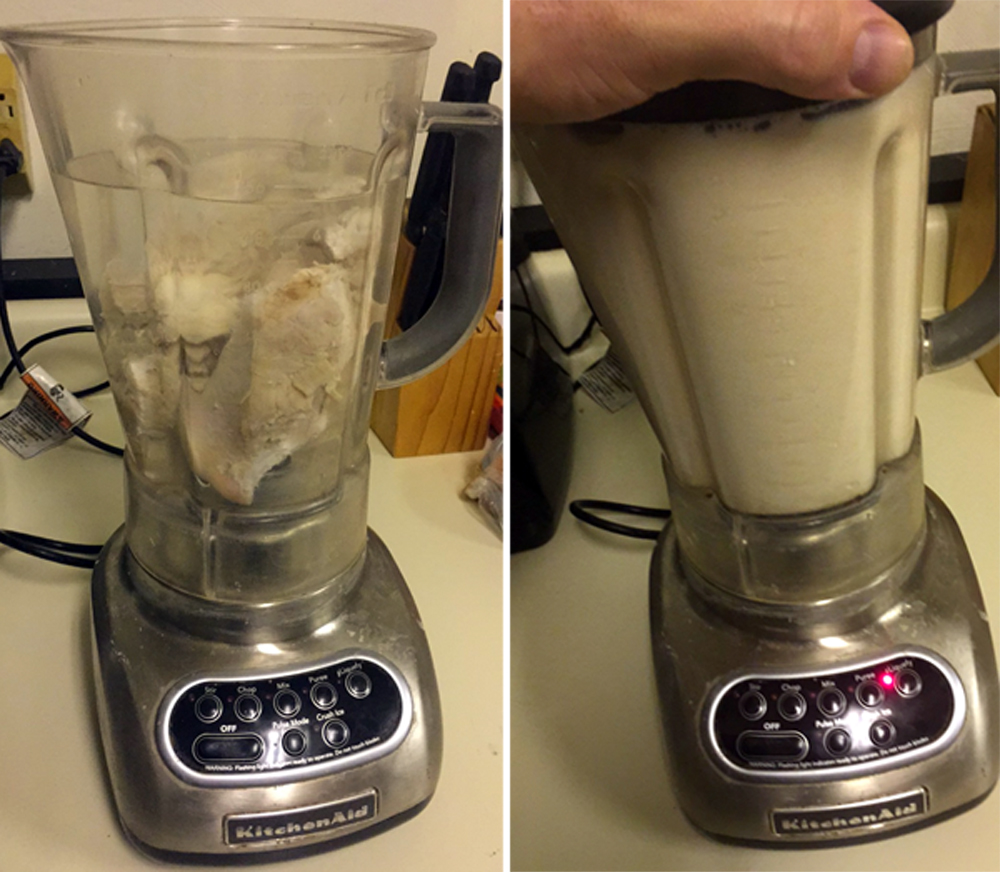
I choose foods that are easy to consume.
When the time comes, I don't have much time. Whether I am doing an all day clinic with clients visiting from out of town, or doing back to back sessions with prospective Keyhole Barbell team members, my schedule is booked solid and I usually have about fifteen minutes I can spare for each meal.
This doesn't make chewing up dry chicken breast seem like a very practical option. Yet, chicken breast has long been my primary protein source. In fact, I have it at least four times per day. The thing is, I drink it.
That's right, I drink it. I make 2.5 pounds of chicken in the form of chicken shakes per day. First, I boil the breasts for about a half hour and then remove the fat by hand, before blending them into a puree with 32 oz of water. The result is broken up into four servings and becomes the protein source for as many of my meals.
I got the idea from Derek Poundstone maybe four or five years ago, and at the time I'd been chewing up chicken multiple times daily for about 15 years. By that point, I was literally gagging every time I had to do so and was willing to try it. It took the work out of eating chicken breast, so I never looked back.
The lion's share of my carbohydrates come from jasmine rice. At night, I make six cups for the next day's meals while I am preparing my chicken. I do not believe that jasmine rice is any better than white rice except that it sticks together, making it easier to eat.
RELATED: The Daily Diet of an IFBB Pro
I can drink the equivalent of ten ounces worth of chicken breast and eat two cups of jasmine rice in about eight minutes if I have to. Sometimes I have to.
My favorite fat sources are the various nut butters. These can also be consumed pretty quickly. I try to eat a pound of vegetables per day, split over two meals. I don't always succeed.
I eat almost half of the day's carbs pre/peri/post workout.
On a normal training day I consume 450-500 grams of carbohydrates. About 200 of those are split up into to shakes. The first one I start sipping about a half hour before I start training; the second, about a half hour before I'm done. The carbs come from a powder product and each shake also includes 50g of protein from a blended source powder product, as well as a seven-gram scoop of creatine monohydrate.
The days I don't train, my fat intake is a little higher in total, and my carb intake is about 150 grams lower. The extra fat comes from lean beef. It costs me around 10 dollars or so per day to eat this way.
Keep in mind that I'm in the 290's.
I don't let my diet control my life.
Four score and seven years ago, when I was new to dieting, I would freak out anytime life showed up and I was forced to, or decided to, go a little off the rails with my eating. Over the years, I realized that letting loose and enjoying some delicious foods now and again, say 10-15% of the time, really didn't set me back all that much, as long as I didn't let it turn into a few days or a week of eating like total shit.
It's good for morale and some of the times I look and feel best are after these "cheats" or breaks from the diet. Just make sure you have the gumption to get right back on track and the occasional transgression can be an beneficial part of the process.
15 calories per pound of bodyweight is a good starting point to figure out your maintenance calories. That is where I start.
To lose fat, I typically set calories at 12 per pound and adjust from there. The reduction in calories will come mostly from carbohydrates, but I try not to let that effect my training shakes dramatically.
When I am trying to add mass, calories will usually stay between 18 and 20 per pound, though I have had to push them much higher to continue gaining at times. The increase in calories will be largely from carbohydrates. During these times I may add a meal in the form of a shake, simply because it is easier to get down.
My protein intake stays the same, at around 1.1 grams per pound, regardless of diet phase. I recommend a little less than that usually. These figures work really well for most people who train, assuming those people are not very fat, in which case they should be adjusted down slightly.
Now you know how I get the diet thing done and hopefully you were able to take something useful from it. I'm not recommending that you guys drink chicken shakes, or even saying that you have to do anything else the way that I do. The fact is, there is no wrong way to do this stuff as long as it ends up with you actually doing it.
Think about things logically, come up with a strategy, prepare, and follow through. Diet is just like any other aspect of an athlete's life: you get out of it what you put into it.










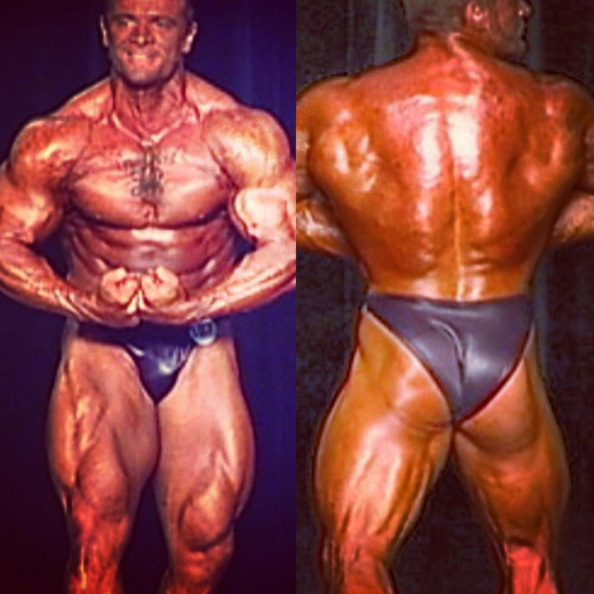
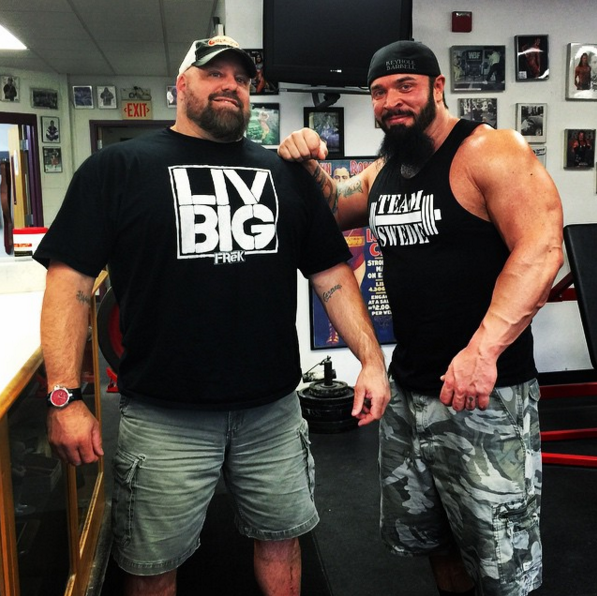
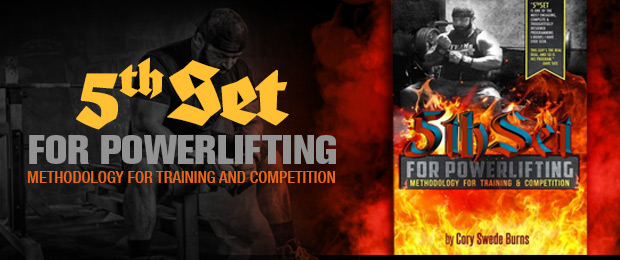
I'm regularly reading your articles on Elitefts, thanks very much for good and very practical info, I really appreciate your expertise and devotion to the Sport!
I am willing to buy your 5-th set ebook and I would have done it already but for some reason which is unknown to me, the EliteFTS webshop won't sell anything to me because I am from Russia.
At least that was the official answer I've got from the customer service.
Too bad, what else can I say... :-(((
Maybe you yourself can sell me your ebook as a private person, I would buy it with great pleasure!
With kind regards!
Roman
I've been reading a lot about nutrition and diet in an effort to diet down a weight class (or two) as I'm a pretty fat 250lber with very mediocre numbers. I figure I might as well diet down now while my number suck and not have to worry about strength reductions later on.
Anyhow, as I'm sure you've noticed there is a ton of conflicting information out there. Some articles propose numbers based on total bodyweight, and I've seen others based only on lean body mass. Are the numbers you are using in this article (15 calories for maintenance, 12 for fat loss, etc) based on actual body weight, or are they based on lean body mass?
Thanks for your time!
There are many factors that effect metabolic rate. If I was pretty fat at 250 I would still start at 12 calories per pound to lose and adjust from there.its always worked best for me to start too high rather than too low.
This is a great article. I'm currently 336lbs, and probably hovering around 30% BF. Deplorable, I know, but this is after losing 100lbs and putting on some muscle mass over 2 years...
In any event, at 12kcals/lb, I'd be "cutting" on 4kcals/day. I'm currently around 3300 on a training day (and around 300g carbs taken in pre and post training), and 2800 on off days with somewhere around 80-100g carbs. This is has allowed me to push my training while backing off some body fat. After a month back on this plan, I dropped 15lbs and now the scale has stalled but the inches continue to drop, so I know I'm on the right track.
My question is more whether I need to consider increasing calories? Bear in mind I'm still significantly overweight according to my bodyfat percentage. I'm just looking for a little guidance, if you've got a second. Thanks!